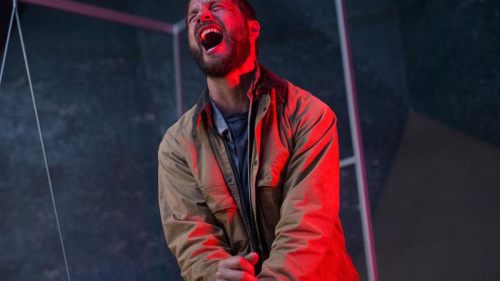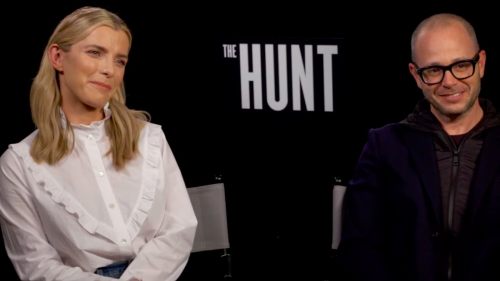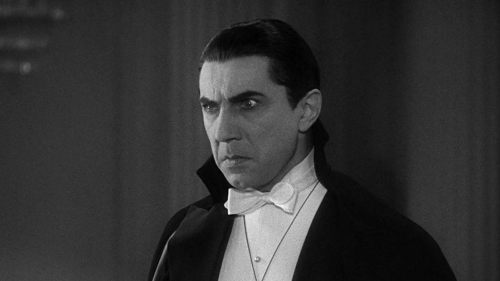The Overlook Film Festival Review: STEPHANIE
Jason Blum and Akiva Goldsman brought the world premiere of Goldsman’s new film Stephanie to the opening night of The Overlook Film Festival. The film, written by Ben Collins and Luke Piotrowski (responsible for the upcoming adaptation of Paul Tremblay’s wonderful horror novel A Head Full of Ghosts) is disappointing as much for what it could be as for what it is.
What it could be: there’s a great little Twilight Zone episode in here (specifically, “It’s A Good Life,” based on the short story by Jerome Bixby). Shree Crooks plays Stephanie, a young girl living alone in a lovely cottage nestled in a forest, a setting lifted directly from a fairy tale. For about half an hour – the best of the film – we watch Stephanie take care of herself, her bunny Mr. Hopper and her stuffed turtle Francis. She reads aloud stories and prepares meals for herself and her fuzzy friends, smoothies and beanie-weenies served on proper little plates. She’s unusual, a small, solemn girl who comports herself like a grown-up. Only occasionally, does she do something that reminds us she’s just a child: she knocks a jar of preserves off a too-high shelf and weeps when she cuts herself on the glass, she snuggles Francis in bed and whispers to him, “I miss Mommy and Daddy.”
Enter Mommy and Daddy. Anna Torv and Frank Grillo quite suddenly appear, explaining that they had to leave Stephanie for reasons that are initially unclear. The little family makes frequent references to “the monster,” and we, the audience, begin to see signs of this mysterious beast that killed Stephanie’s brother and scared away her parents. As the three of them spend more time together, the seemingly quaint family dynamic starts to unravel in pretty dark ways.
If only this were the entirety of Stephanie’s narrative. All of the stuff that takes place in the cottage is interesting and mostly well-executed, especially the parts with Stephanie by herself. Crooks has an impressive presence, the rare child who could carry a film by herself, but even when her parents arrive, we remain engaged. Torv and Grillo are also great, showing warmth and affection for their daughter with an ever-present vein of tension running below every scene.
Unfortunately, there’s more to Stephanie, a framing device so nonsensical I’m not even quite sure how to describe it to you. A long opening text prologue informs us that it’s 2027, five years after the Coalition Victory. Negative emotions are not allowed in this new, futuristic America, and lab technicians are furiously working on …something. They discover …something , and become very dismayed about …something. LOST’s Harold Perrineau is the leader of some sort of military unit, and appears, once, in a lightning-quick scene in which something important is supposedly revealed, but no one I spoke to after the film could make head or tails of it.
It’s a witless attempt to take a small story and make it big, with no understanding of the potential power of that small story. Not a moment, not a word of that framing device is compelling, and in fact it’s so deeply dumb that it retroactively diminishes the impact of everything that takes place in the cottage.
It could be an easy fix – just cut the opening and closing segments and leave us with a short but interesting dark parable – but one that feels unlikely before Stephanie sees a wider audience. Goldsman’s answers during the Q&A make it clear that he finds the bookends crucial to Stephanie’s larger story, so we're left with another boring, low-budget tale of dystopian future when we could have gotten something much cooler.



